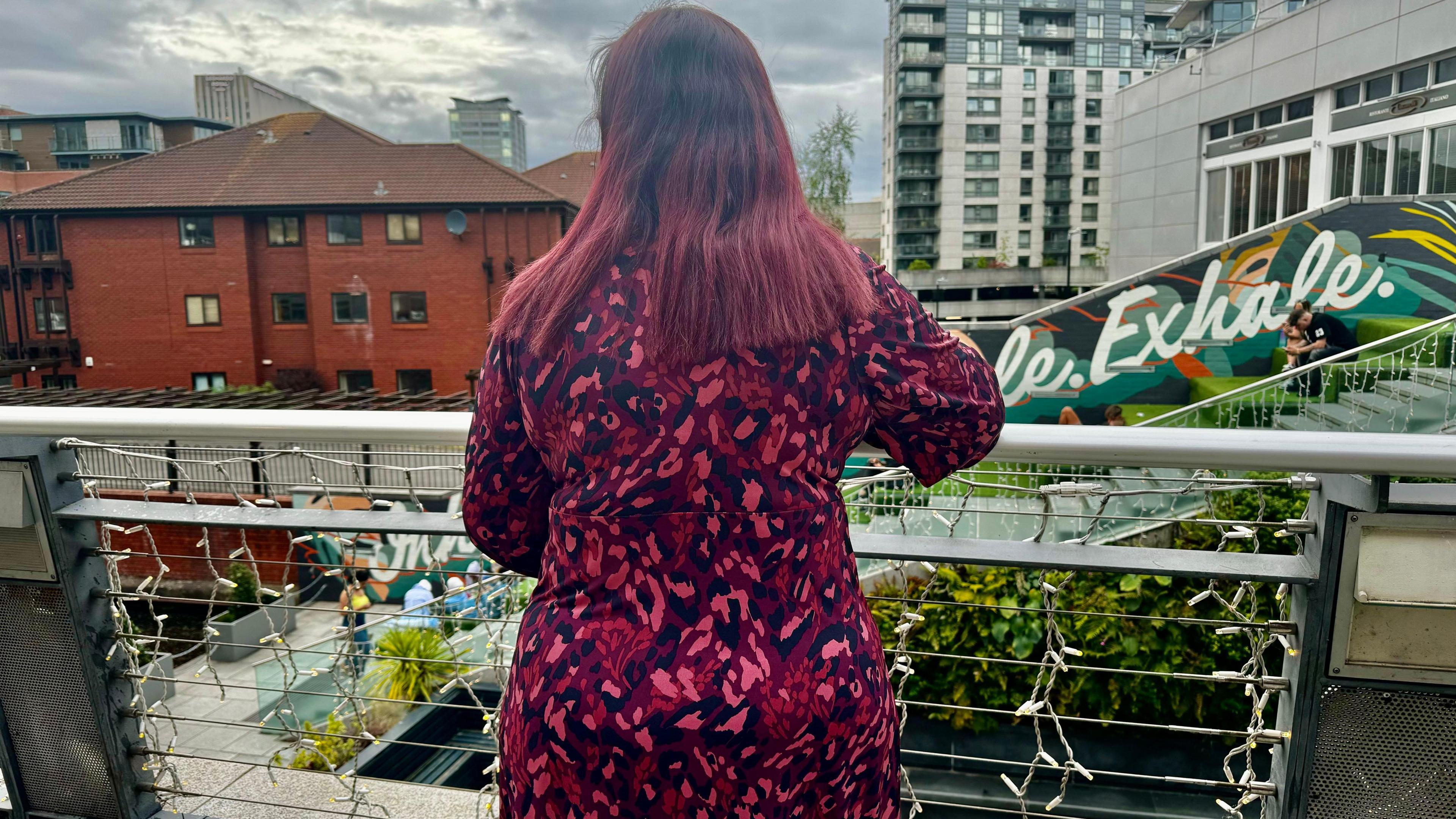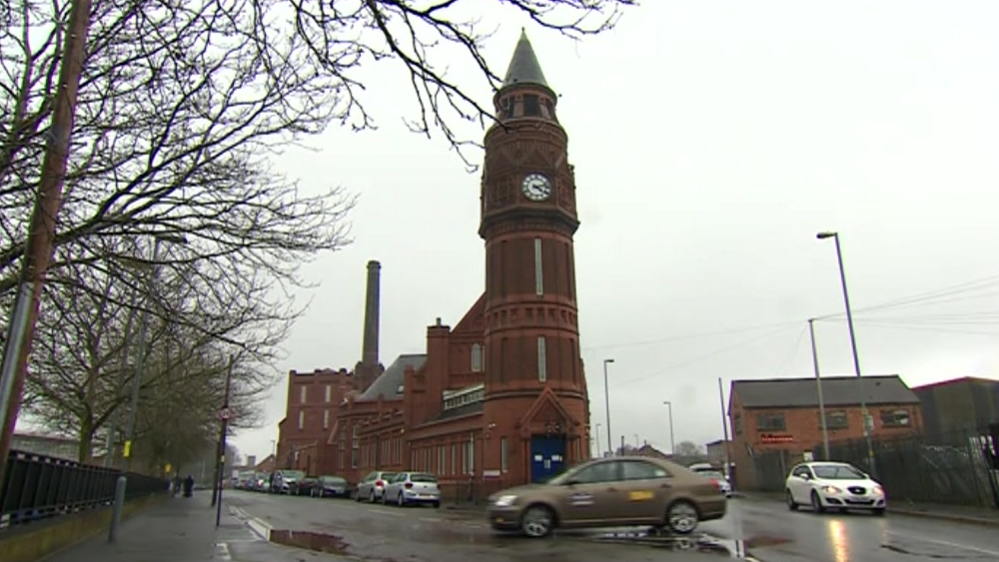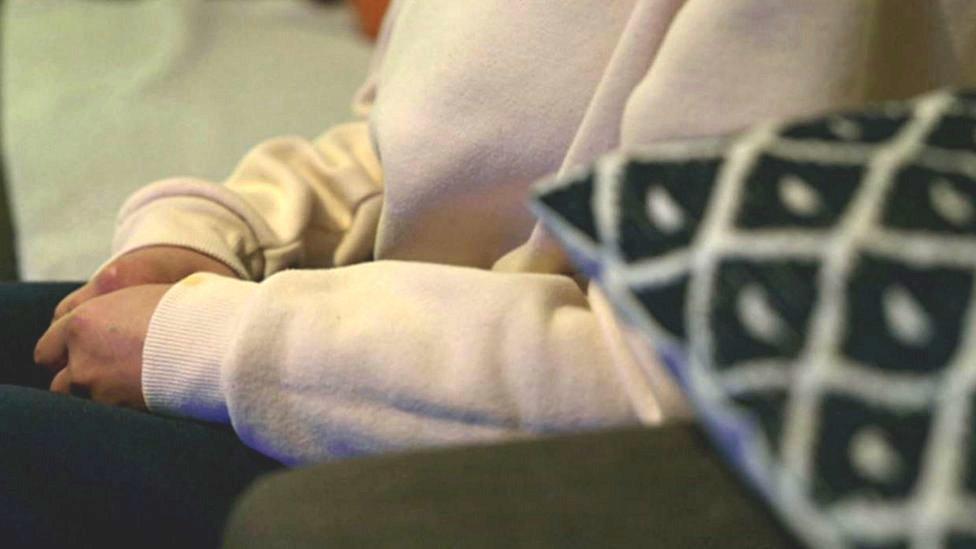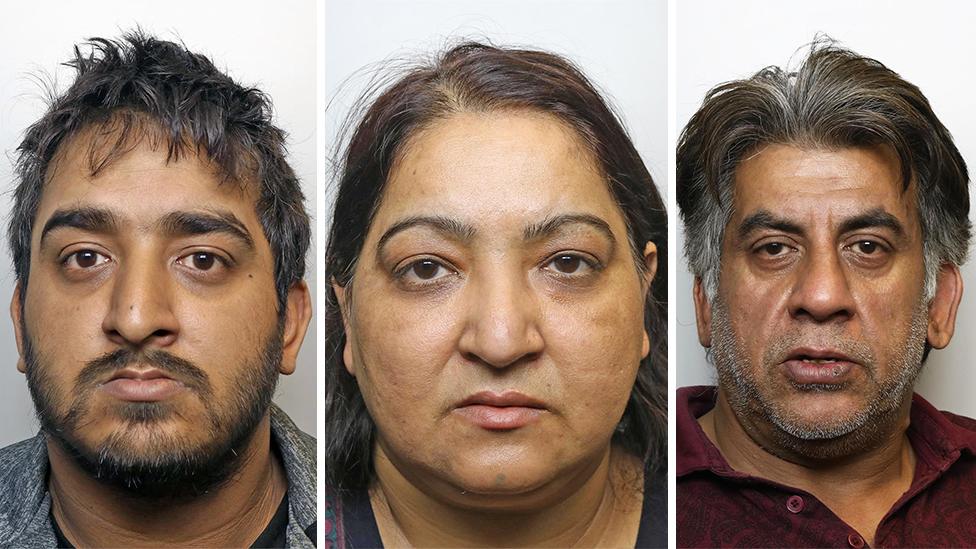Pakistani women fear reporting abuse - campaigners

Shazia, who did not want to use her real name, said she experienced abuse in both of her marriages
- Published
Pakistani women are not reporting incidences of domestic abuse for fear of family disownment and community isolation, campaigners have said.
A specialist domestic violence unit at Green Lane Mosque in Birmingham said that there was a "hidden pandemic" of violence that official figures did not reflect.
Up to 50% of women who use the service do not report their abuse to police due to fear of losing their home, financial support and being isolated, staff said.
They can receive help in a safe and secure environment and staff said since they launched three years ago, they have seen 200 women.
Shazia, who does not want to use her real name for fear of any recriminations, was born and raised in the West Midlands and said she experienced domestic abuse in both her marriages, but did not report it.
"I suffered domestic abuse, starvation and mental abuse to the point that I could not take it anymore," she said.
She was first forced to marry her cousin in Pakistan and suffered daily incidences of abuse.
She collapsed while pregnant with her first child in Pakistan and was rushed to hospital.
Her in-laws were worried they would be blamed if anything was wrong so sent her back to England to her mother, which is how she escaped her abuser.
At hospital in Birmingham, she said nurses could not believe she was pregnant as she was so emaciated and fragile.
Going against her mother’s advice, Shazia went on to divorce her husband.

Green Lane Mosque in Birmingham is one of the largest in the city
Shazia initially refused to remarry but eventually yielded to family pressure about being an unmarried mother within the community.
Once again she found herself the subject of physical and emotional abuse.
Her son from her first marriage was also a target and was hit and had toys taken away, she said.
"One day I said 'enough is enough' and I told him to leave."
She said she did not report anything because she knew she would not receive support from family and she would be shunned in her community.
"I remember my mother saying 'don’t cut the rope, don’t cut the rope', meaning don’t break this marriage up, it doesn’t matter what they do to you," she said.
Asiya Aziz, who does not want to use her real name due to sensitivities around her work, leads the domestic abuse service at Green Lane Mosque, one of the biggest in Birmingham, and said at least 70% of the women they helped were Pakistani.
The service, which is open to women from all ethnicities and backgrounds, has been so busy they have extended the clinic and employed an additional support worker, she said.
"It is a hidden pandemic, that’s why we have to support these woman in any way we can," she said.
'Don't stay silent'
Shazia said she wished the mosque service had been available to her when she was suffering.
"I would say to anyone suffering abuse now - don’t stay silent, go to the police or the mosque, there is so much support out there," she said.
The mosque can offer financial support to women who need it through the mosque's Zakat system – which is a way Muslims donate to charity.
It was also keen to make sure all staff were trained about domestic abuse, which included the Imams who run sermons on the topic, and staff have emphasised that Islam does not allow abuse of any kind to anyone.
Sharon Bryan, from the National Centre for Domestic Violence, said she had been working with women from the Pakistani community as well as others suffering abuse for over 28 years.
"They are scared, they won’t report to the police," she said.
"Many Pakistani woman do not realise what was happening to them was wrong and that it was a crime," she said.
West Midlands Police, which has a specialist domestic abuse unit, has encouraged women who were experiencing abuse to come forward and report it.
Follow BBC Birmingham on Facebook, external, X, external and Instagram. Send your story ideas to: newsonline.westmidlands@bbc.co.uk, external
Related topics
- Published21 February 2024

- Published14 February 2024
